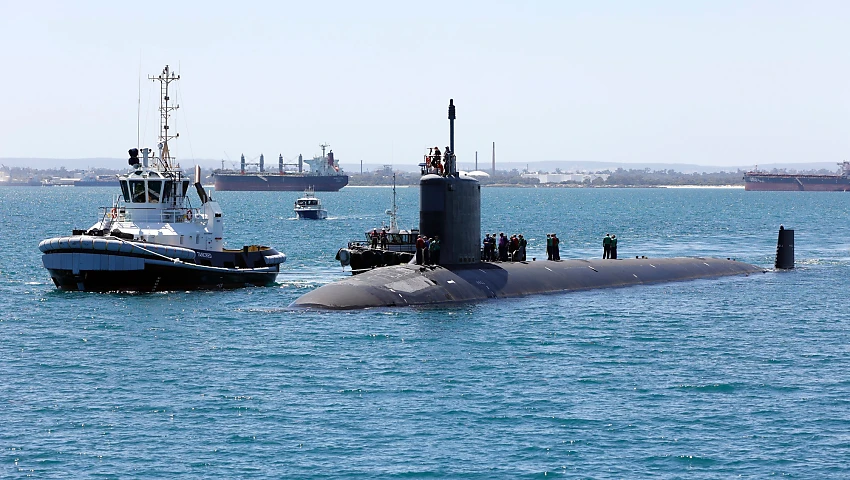
Australia’s Quest to Ease Nuclear Submarine Fears
Picture: Russell Groth CPO
Australia’s journey to introduce nuclear-powered submarines has reignited decades-long concerns over nuclear weapons and associated technologies. The Australian Submarine Agency (ASA) is proactively addressing these concerns with engaging informational campaigns. A recently released “Introduction to Nuclear-Powered Submarines” video as part of Nuclear Science Week highlighted the advantages and safety of these submarines.
Established earlier this year, ASA is responsible for the acquisition and governance of Australia’s nuclear-powered submarine capability, facilitated by the AUKUS partnership involving the UK and the US. This trilateral agreement reinforces the narrative that the Indo-Pacific has become a strategic hotspot, and nuclear submarines will offer Australia a competitive edge.
Australia’s submarine transition aligns with increasing geo-political tensions, especially in the South China Sea. As part of this change, Australia will receive the first SSN-AUKUS from the UK in the late 2030s, followed by domestically built versions in the 2040s. Additionally, a deal for the US to sell nuclear-powered Virginia Class submarines to Australia is in the pipeline.
Why the move to nuclear? The ASA highlights several advantages: nuclear-powered submarines do not need frequent recharges like their diesel counterparts, boast unlimited range and faster speeds, and derive energy from controlled nuclear fission reactions. These submarines also emphasize safety with four layers of protection, and the radiation exposure to crews is minimal – less than that of long-haul pilots.
Despite the ASA’s confidence, a generational aversion to nuclear power stemming from the Cold War era and opposition to domestic nuclear energy projects remain. Recent polls indicate a dip in the number of Australians “strongly” supporting the nuclear submarine acquisition. While some believe the submarines will boost regional stability, others are unsure or believe they could raise military tensions.
The historical anti-nuclear sentiment, influenced by concerns over nuclear energy production and weapons testing, might be a challenge. However, with global nuclear advancements, it’s hoped that public trust in nuclear technology will grow as Australia progresses with its submarine program.




